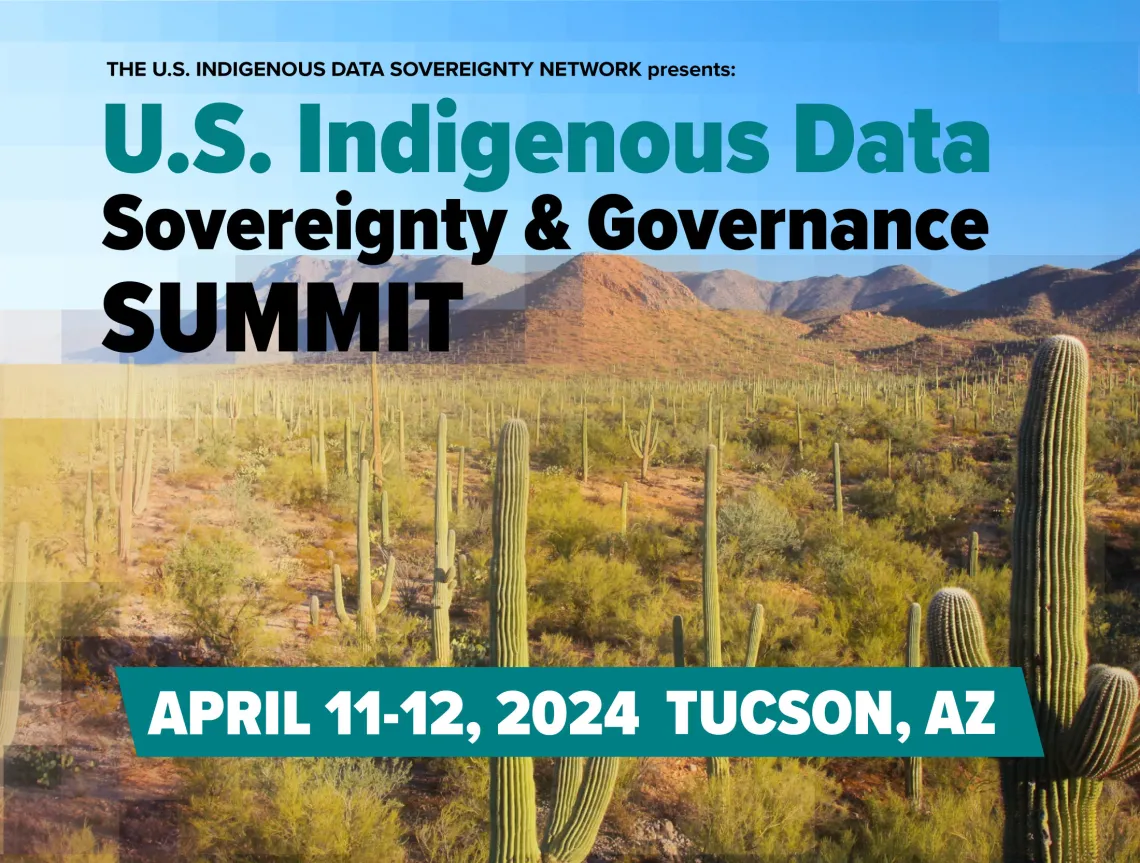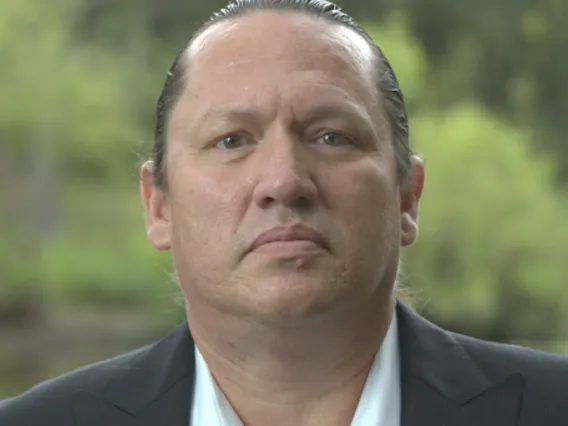‘Building Action and Power’: U.S. Indigenous Data Sovereignty Network Announces Dates for First IDSov & IDGov Summit in Tucson

The U.S. Indigenous Data Sovereignty Network will hold a two-day, in-person Indigenous Data Sovereignty (IDSov) and Indigenous Data Governance (IDGov) summit titled Building Action and Power on April 11-12, 2024 near Tucson, Arizona on the homelands of the Pascua Yaqui Tribe.
The summit will also feature a day-long workshop for a small cohort of invited Indigenous leaders and scholars on April 10.
The 2024 summit – which event managers expect to attract between 150-300 IDSov and IDGov experts, researchers and activists to southern Arizona – will build on knowledge and conversations initiated at smaller events at UCLA in 2017 and at ASU in 2019.
According to the event website, IDSov and IDGov advocates will use the summit to transition their work from delineating principles and rights of Indigenous Peoples related to accessing and controlling their own data, knowledges, cultural heritage, specimens and relatives toward the following three goals:
- Establishing a national standard in the US. for Indigenous data governance,
- Creating an Indigenous data standard via nation-to-nation partnerships between Indigenous Peoples and the federal government, and
- Enhancing Indigenous Peoples’ laws, policies, and systems for Indigenous data sovereignty led by the priorities, vision, and strengths of sovereign Indigenous Peoples for our shared data futures.
In other words, this event comes at a pivotal time for proponents of IDSov and IDGov as conversations in this arena are rapidly evolving from simple assertions that Indigenous Peoples should have control over data about their lands, communities, citizens and cultures, to outlining how researchers, research institutions, funders and even governments can and should implement policies, procedures and laws that protect Indigenous Peoples from extractive research practices and the historical misuse of Indigenous data and knowledge.
Including the Politically Excluded
In 2007, the United Nations Declaration of the Rights of Indigenous Peoples (UNDRIP) reaffirmed the rights of Indigenous Peoples around the world to “access and control data about their Peoples, territories, lifeways, and resources,” according to a 2023 paper published in the journal Frontiers in Research Metrics and Analytics by several members of the Collaboratory for Indigenous Data Governance and Global Indigenous Data Alliance.
That declaration also called on governments and other policymakers the world over to “respect and promote the rights of [I]ndigenous [P]eoples affirmed in treaties, agreements and other constructive arrangements with States.”
According to the United Nations, there are over 476 million Indigenous individuals from more than 5000 unique cultures in 90 nations. Counted among those are an estimated 3.1 million - 8.7 million Indigenous people in the United States.
But not all Indigenous Peoples in the U.S. are treated equally (or, for that matter, equitably).
There are 574 federally recognized Tribal Nations in the U.S. today. However, some Indigenous Peoples in U.S. states and territories – including peoples from Hawaii, Guam, Puerto Rico, the northern Mariana Islands, American Samoa and the U.S. Virgin Islands – are not officially recognized by state and federal governments. Those pushing for recognition and implementation of IDSov and IDGov principles assert that these peoples also deserve to have their inherent data rights recognized at all levels.
“Indigenous Peoples have these rights regardless of whether or not they are acknowledged by existing laws,” says Native Nations Institute (NNI) Associate Director and summit organizer Stephanie Russo Carroll (Ahtna; citizen of the Native Village of Kluti-Kaah).
Riley Taitingfong is a postdoctoral researcher at NNI and serves on the summit’s Planning and Fundraising Committees. As a descendant of the CHamoru People of Guam, Taitingfong says that she is excited to see the Indigenous Peoples of these U.S. territories included in the event. “Movements for Indigenous self-determination are active in these regions,” she says, “and the IDSov movement will be strengthened through collaboration with folks engaged in those efforts.”
Event Planning Is Well Underway
With just under seven months to go before the kickoff of the inaugural summit, planners are deep in the throes of lining up presenters, workshops, panels, sponsors and other elements of the event.
At least three keynote speakers have been confirmed as participants with additional speakers and presenters continually being added. Currently, the keynote lineup for the event includes:


Kirikowhai Mikaere (Tūhourangi, Ngāti Whakaue)
Lead Technical Advisor, National Iwi (Tribal) Chairs Forum - Data Leadership Group, New Zealand

The 2024 U.S. Indigenous Data Sovereignty and Governance Summit is a program of the U.S. Indigenous Data Sovereignty Network. It is made possible through a collaboration between IDSov and IDGov scholars from several institutions and organizations, including:
- UArizona Udall Center for Studies in Public Policy
- Udall Center Native Nations Institute
- Native BioData Consortium
- The Collaboratory for Indigenous Data Governance
- Colorado State University Indigenous Land & Data Stewards Lab
- UCLA Data Warriors Lab
- UCLA American Indian Studies Program
- Washington State University Indigenous Organizations & Data Lab
- University of Washington Seven Directions Center for Indigenous Public Health
Get involved

